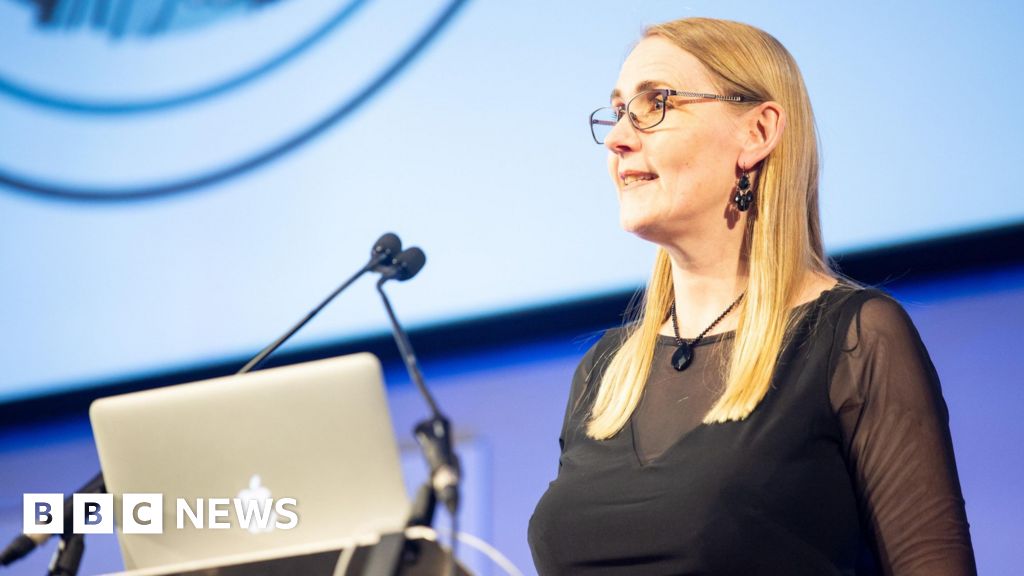The Future of Ada Lovelace Day: A Call to Action for Women in STEM
Suw Charman-Anderson, the visionary behind Ada Lovelace Day, is sounding the alarm. The annual event, dedicated to celebrating the achievements of women in science, technology, engineering, and mathematics (STEM), is facing an uncertain future. As corporate budgets tighten and cultural attitudes shift, the very initiatives designed to promote diversity and inclusion in STEM fields are struggling to survive.
The Birth of Ada Lovelace Day
Ada Lovelace Day, named after the pioneering 19th-century mathematician Ada Lovelace, was established in 2009 by Charman-Anderson. A graduate with a science degree, she experienced firsthand the challenges of being one of only three women in her class. Frustrated by the lack of female representation at tech conferences, she sought to create a platform that would not only celebrate women in STEM but also inspire future generations.
Despite its noble mission, Charman-Anderson reveals that the initiative is now “running out of funds again.” Two years ago, the event was on the brink of collapse, and while it has managed to continue, the financial strain is palpable. “We’ve basically limped on since then,” she admits. “But I can’t keep making the financial sacrifice.”
The Financial Struggles of Diversity Initiatives
At its peak, Ada Lovelace Day secured £55,000 in sponsorship for a year, but in subsequent years, funding has dwindled to less than half that amount, despite high attendance figures at events. Charman-Anderson often hears from the tech community that the day is inspirational, yet this praise rarely translates into the financial support that is desperately needed. “Organisations can’t run on inspiration alone,” she asserts, highlighting a broader trend affecting women in STEM initiatives.
The financial struggles are not unique to Ada Lovelace Day. A quick search reveals numerous women in STEM social media accounts that have gone silent for months. This year alone has seen the sudden closure of significant organizations like Women Who Code, which boasted 145,000 members, and Girls in Tech, both citing funding issues as the primary reason for their shutdowns. The UK initiative Tech Talent Charter also closed its doors, blaming tech companies for “quietly quitting” on their equality, diversity, and inclusion (EDI) commitments.
A Cultural Shift Away from Diversity
The decline in funding and support for women in STEM initiatives reflects a broader cultural shift. While some corporations continue to prioritize diversity, others are cutting back on EDI teams and budgets. High-profile critics of EDI, such as Elon Musk, have publicly dismissed it, while leaders like Apple’s Tim Cook argue that diverse perspectives are essential for innovation.
Despite the rhetoric, the statistics tell a different story. Major tech companies still skew predominantly male, with Apple reporting that only 35% of its global workforce are women, and Google and Microsoft showing similar figures. In the UK, while more young women are studying computing science, the gender disparity remains stark, with four out of five applicants still male.
The Importance of Representation
The importance of representation in STEM cannot be overstated. MC Spano, a tech firm leader, emphasizes that camaraderie among female students is crucial for their success. Her own daughter’s experience of wanting to leave a top-set math class due to being the only girl illustrates the need for supportive environments where women can thrive.
Caitlin Gould, who runs TecWomenCIC in Cornwall, recently conducted a coding club project for schoolgirls, with impressive results: 95% enjoyed learning about tech and engineering, and 91% recognized its relevance to their lives. However, funding for such initiatives is often a patchwork affair, making it difficult to sustain successful programs.
Maggie Philbin, former presenter of BBC’s Tomorrow’s World, has been involved in TeenTech for 15 years, running STEM activities in schools. She echoes the sentiment that funding is a constant challenge, often leaving organizations to operate on a hand-to-mouth basis.
A Call to Action
As Suw Charman-Anderson warns of the potential end of Ada Lovelace Day, it is clear that the fight for women in STEM is far from over. The challenges are significant, but the need for diverse voices in technology and science is more critical than ever.
Support for initiatives like Ada Lovelace Day is not just about funding; it’s about recognizing the value of diversity in shaping the future of STEM. As the tech community grapples with budget cuts and shifting priorities, it is essential to rally behind organizations that uplift women and promote inclusivity.
The future of Ada Lovelace Day—and the broader movement for women in STEM—depends on collective action. Whether through financial support, volunteering, or simply spreading the word, every effort counts. The time to act is now, before we lose the progress that has been made and the potential that lies ahead.


